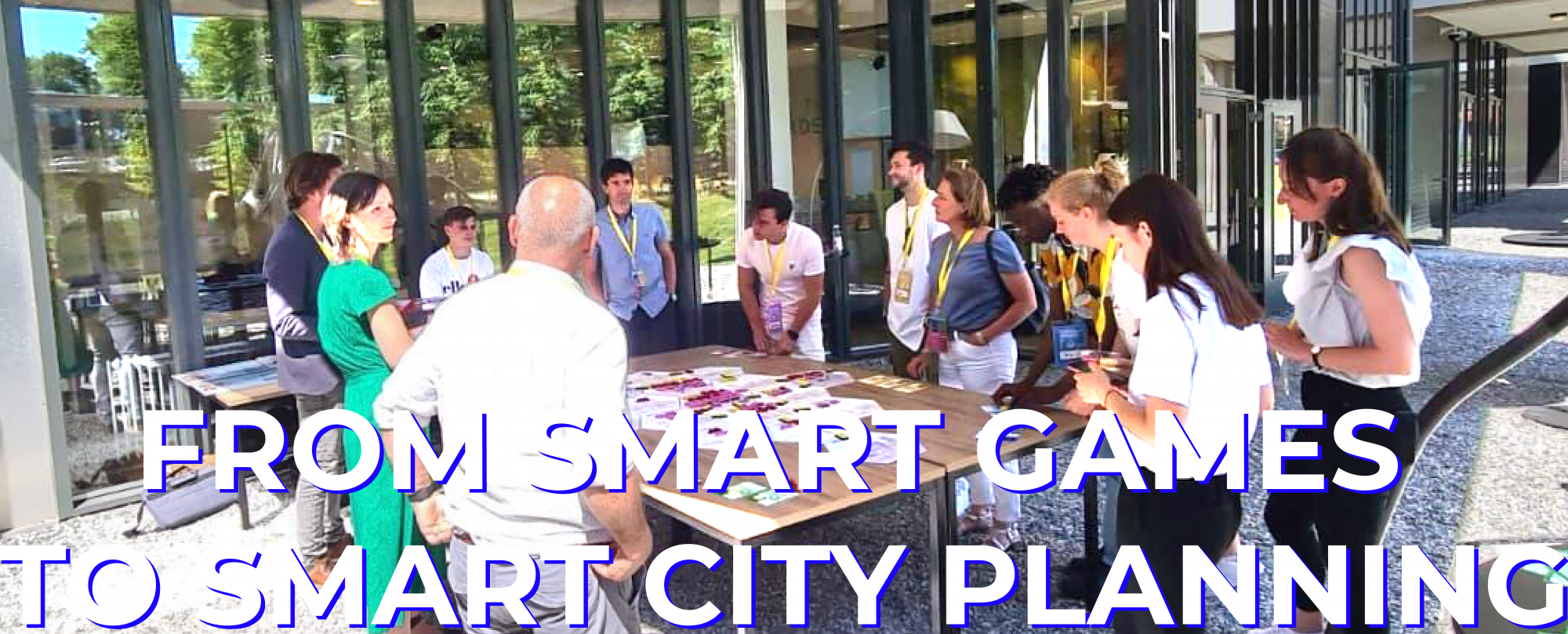Author: |
Public Play Spaces |
PPS, EU, 2021 | |
| https://www.publicplayspace.eu/ | |
From Smart Games to Smart City Planning - SCITHOS is the third and last Open Game Event, organised by BUas - Breda University of applied sciences, in collaboration with the municipality of Breda.
In this event, students from the smart city course, visitors that were passing by the University Campus and invited city planners from the municipality played the serious planning game SCITHOS, with the aim of investigating to what extent games can lead to a deeper understanding about balancing different needs in a city to make attractive, inclusive, and playful cities.
The Open Game Event in Breda was a very successful experience. There was a very good level of participation among the invited parties, the learning experience was meaningful, and the audience got a taste of what a sophisticated serious game can look like. After playing the game, participants realised the importance of working together, aligning goals and built a cohesive strategy to truly move forward. When thinking of these cohesive strategies they had to think about how one plan impacted the other plans.
Students, visitors and members from the municipalities stated in the survey the importance of these goals and that they felt this was still a challenge in Breda. What they also saw was, just like in regular participatory processes, people who dare to speak up, take the word and are able to convince people heavily stir the direction of the plans. this is both a challenge and an opportunity. It shows that leadership is needed to make progress but that you must not mistake outcomes of participatory processes for views that truly represent the views, with all its variations, of the participants.
They also touched upon the importance of trust. In one of the sessions, some participants made a promise that they did not keep. The others felt betrayed and found it hard to trust them again. In the debrief, the municipality reflected on this process in real life. They stated the importance of only make promises you can and will keep and the importance of expectation management.
BREDA'S CHALLENGE
Breda’s Open Game Event is based upon the serious game SCITHOS, which can be tailored to specific locations. For the Open Game Event, we tailored it to the needs of the municipality of Breda. We analysed those needs through a combination of data analysis and interviews with the municipality experts.
From this analysis, we derived the following context and narratives for the game that was used during the Open Game Event: Breda is an accessible city that hosts many different cultures, has a rich historical and architectural heritage in the city centre, and is doing promising pilots when it comes to digitalisation and sustainability. Breda is also one of the richest and right-wing cities on the financial and political spectrum in the Netherlands. For years, the municipality council has been dominated by the VVD, a neo-capitalist party with an affinity for cars. Due to its geographical composition with a very centric approach to the old city centre, south of the rail track and a more sprawled approach north of the rail track it is also quite segregated, which could lead to very different experiences of living in this city.
This context leads to the following challenges:
- For years, Breda has been one of the prettiest cities in the Netherlands when it comes to architecture. One might feel that it leaned a bit too much on being the prettiest girl in the class. She is not very daring and is quite conservative in experimenting. At the same time, other cities are becoming more competitive by the year. Breda is missing big attractions like the Nijmegse vierdaagse or the museum the Fundatie in Zwolle. It is all quite average resulting in good visitation numbers from people who live close by, but it struggles with attracting visitors who live further away. How can it become more attractive, not by growth but by increasing the quality of the experience to attract visitors who come for more than shopping and the catering industry?
- Breda is quite segregated due to a big barrier: the railway tracks. This results in parallel lives of inhabitants who experience the city very differently depending on where they live. A lot of money is being pumped into Breda North on a yearly basis. With the Belkrum neighborhood the situation is improving, in the other neighbourhoods in the north, the quality of life is not increasing, it is even decreasing. Income, health, life expectancy, happiness, school dropouts are all substantially lower in the north than in the south. Breda is currently working on another tunnel under these tracks, but how can you also connect it content-wise and increase the quality of life at the same time?
- Breda has a strong collaboration with the private sector to maintain a strong and attractive city centre. Both these private organisations and the municipality realise that action is needed to maintain being competitive. This might result in a strong emphasis on the monetary economy and less emphasis on free cultural leisure. Breda is currently working on a brand strategy, but it struggles with defining its selling points. How can Breda diversify what it has to offer with help from these private organisations without harming the competitiveness of the city centre?
Based upon the interviews and the data analysis, we adjusted the parameters of SCITHOS that resulted in a tailored dashboard that reflects the current status of the municipality of Breda.








